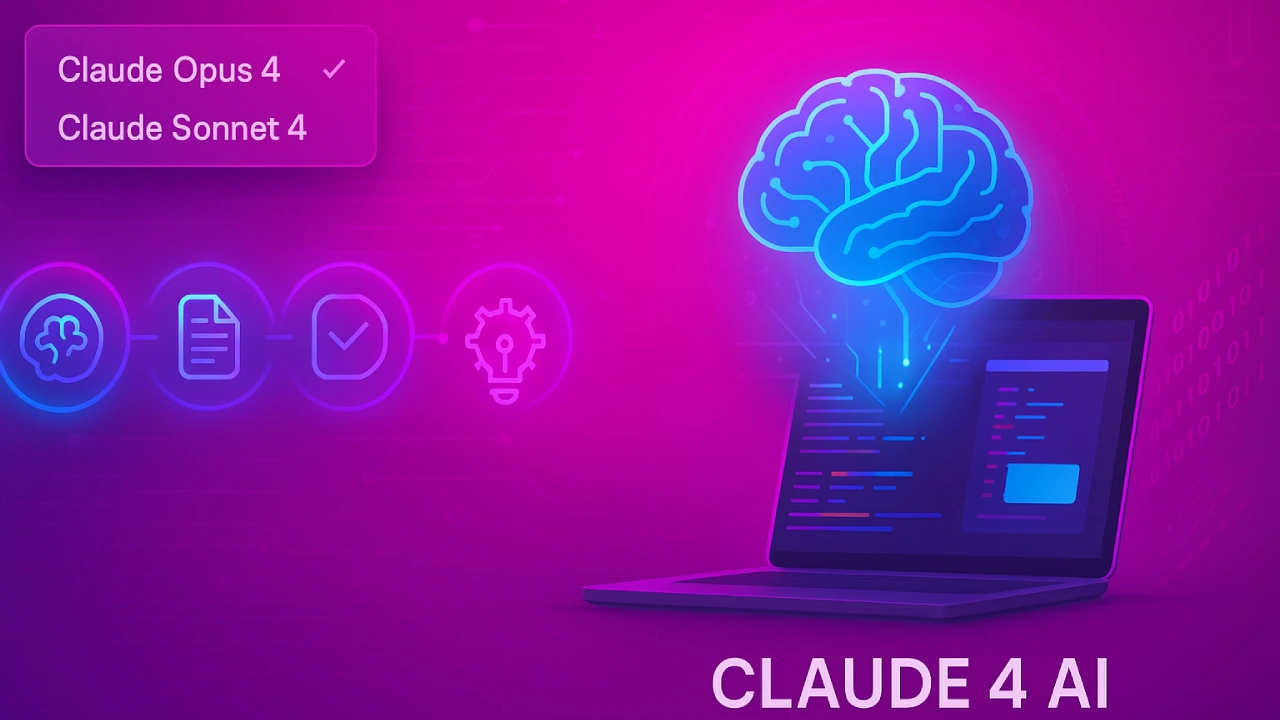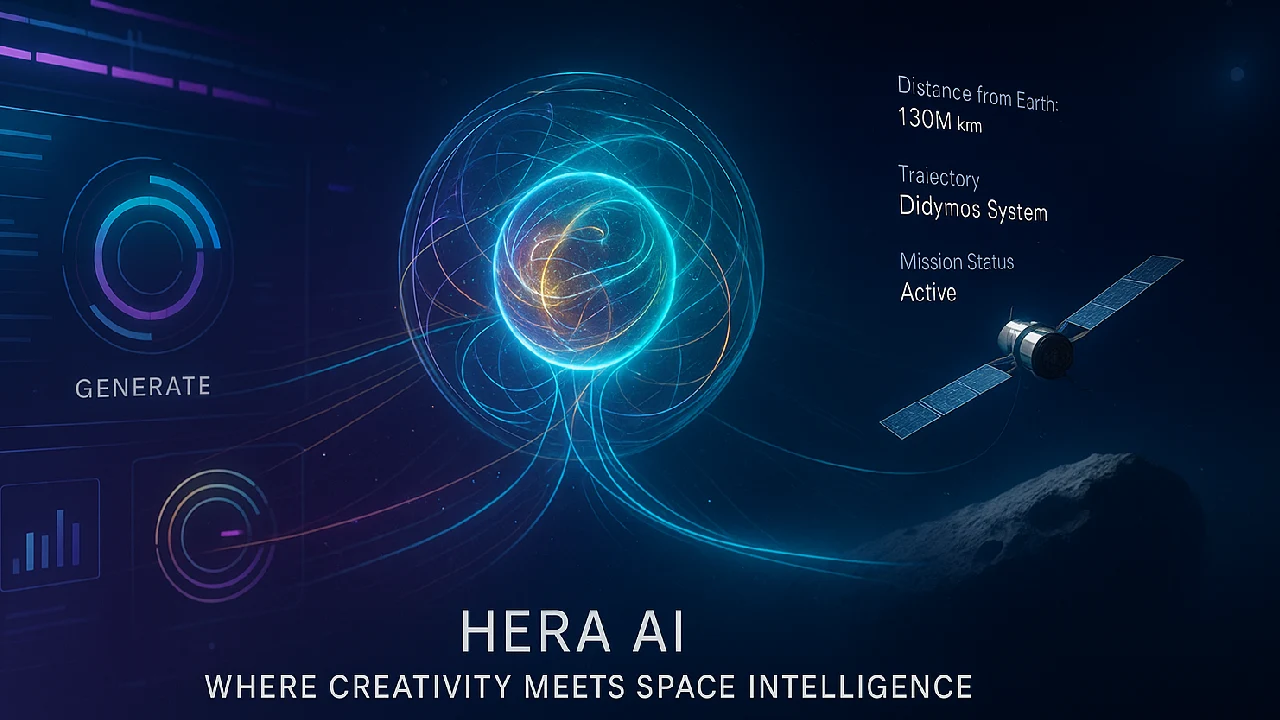Claude 4 is the latest flagship AI model by Anthropic, designed to push the limits of intelligent automation and coding assistance. Built for complex reasoning, long-term task memory, and real-time collaboration, Claude 4 is increasingly being adopted by developers, AI researchers, and companies looking for deep AI integration.
In this blog, we explore everything you need to know about Claude 4, from its models (Opus 4 and Sonnet 4) and features to pricing, use cases, and comparisons with ChatGPT and GPT-4.
Claude 4 Models: Opus 4 vs Sonnet 4
Claude Opus 4: The Best AI for Coding?
Claude Opus 4 is Anthropic’s top-tier model and is considered the most powerful coding AI available in 2025. Here’s why it’s a game-changer:
- Benchmarks: 72.5% on SWE-bench and 43.2% on Terminal-bench.
- Performance: Excels in multi-step problem solving, agent workflows, and long-term memory use.
- Trusted By: Replit, Cursor, and Cognition for tasks like codebase refactoring and long-running automation.
Claude Opus 4 Benefits:
- Claude Opus 4 enhances memory retention during prolonged sessions.
- Claude Opus 4 offers superior reasoning in debugging and large-scale code generation.
- Can reduce reliance on shortcut tactics by 65%.
Claude Sonnet 4: Premium AI, Free Access
While not as powerful as Opus 4, Claude Sonnet 4 is still an exceptional model, now freely accessible with limitations.
- Score: 72.7% on SWE-bench.
- Efficiency: Optimized for precision edits, fewer hallucinations, and streamlined responses.
- Used By: GitHub Copilot, Sourcegraph, and developers seeking smart IDE support.
How to Access and Use Claude 4
Claude 4 offers several modes of interaction for developers and enterprises:
1. Claude AI Web App
- Upload files, review, and refactor code with the real-time Artifacts feature.
- Access Sonnet 4 for free (limited by compute usage, not message count).
2. Claude Code CLI
- Run
@claudeinside your terminal to debug, refactor, or generate project files. - Supports model switching using
/modelcommands.
3. GitHub Integration
- Automate tasks via pull request comments.
- Claude can generate PRs, add Docker files, or fix bugs with minimal prompting.
4. IDE Plugins (VSCode & JetBrains)
- The code editor allows for live editing and diagnostics.
- View diffs, receive suggestions, and interact within the IDE.
5. Python SDK
- Use Claude 4 programmatically (
pip install anthropic) to build tools and automate workflows.
Pricing Comparison: Is Claude Opus 4 Worth It?
| Model | Input Token Cost | Output Token Cost | Use Case |
|---|---|---|---|
| Claude Opus 4 | $15/million | $75/million | Deep AI workflows, coding agents |
| Claude Sonnet 4 | $75 million | $15/million | Affordable coding assistant |
Claude Free vs ChatGPT Free (2025)
| Feature | Claude Free (Sonnet 4) | ChatGPT Free |
|---|---|---|
| Model Power | Higher for reasoning/coding | General-purpose tasks |
| Daily Limit | Low (compute budget) | High (message-based) |
| File Uploads | Yes | Yes |
| Image Generation | No | Yes (via DALL·E) |
| Artifacts/Code Tools | Yes | Limited |
Pro Tips for Using Claude Sonnet 4 for Free
- Start a New Chat Per Task: Reduces token cost and resets memory.
- Ask Smarter Questions: Bundle multiple tasks in one prompt.
- Use Summaries: Summarize and reuse outputs to extend context.
- Avoid Large Files: Paste only essential code sections.
Is Claude Better Than GPT?
This is a hot topic in 2025. Here’s a quick comparison:
| Feature | Claude Opus 4 | GPT-4 (ChatGPT Plus) |
|---|---|---|
| Coding Depth | Superior | Solid for mid-level tasks |
| Memory Management | Long memory files | Limited in Free version |
| File Integration | Strong | Good |
| Price for Output | High | More affordable |
| Image & Creative Output | Limited | Better multimedia support |
Conclusion: Is Claude 4 Right for You?
Claude 4 stands out as a developer-first AI with unmatched capabilities in code reasoning, refactoring, and long-form workflows. If you’re looking for a free, high-quality assistant, Claude Sonnet 4 is a smart alternative to ChatGPT. But if you’re running complex automation, refactoring massive codebases, or building advanced AI agents, Claude Opus 4 might be worth the premium cost.







